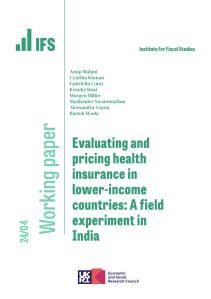Access
Using objective measures of lung function, we document strong positive associations in health within couples in all European countries but large and significant differences in this correlation within broad European regions, with Southern Europe having by far stronger correlations than elsewhere. We analyze potential explanations for such differences, investigating the role of measures capturing current and past health behaviors, early life circumstances of each spouse, and measures capturing assortative mating in multiple dimensions. We show that marital sorting patterns by dimensions of early life health and socioeconomic position, as well as by geographical subregion within countries, are key to understanding the empirical patterns observed.
Authors

CPP Co-Director
James is Senior Research Fellow and Professor of Economics at Manchester, working on broad issues in the economics of retirement, savings and health.

James P Smith

Iris Kesternich
Journal article details
- DOI
- 10.1002/hec.4253
- Publisher
- Health Economics
- Issue
- May 2021
Suggested citation
J, Banks and I, Kesternich and J, Smith. (2021). 'International differences in interspousal health correlations' (2021)
More from IFS
Understand this issue

Conservative Party Conference: Can the next government afford the NHS?

Disability, illness and pain are real problems for the entire economy
28 August 2023

Retirement is not always a choice that workers can afford to make
6 November 2023
Policy analysis

The past and future of NHS waiting lists in England
29 February 2024

Recent trends in and the outlook for health-related benefits
19 April 2024

4.2 million working-age people now claiming health-related benefits, could rise by 30% by the end of the decade
19 April 2024
Academic research

The consequences of miscarriage on parental investments
22 March 2024

The menopause "penalty"
18 March 2024

Evaluating pricing health insurance in lower-income countries: A field experiment in India
14 March 2024